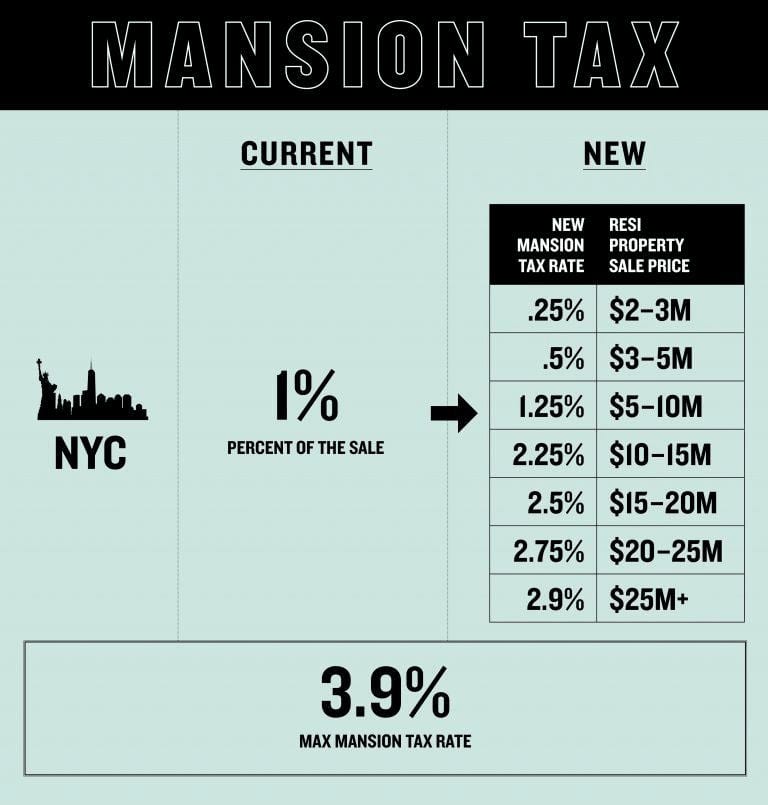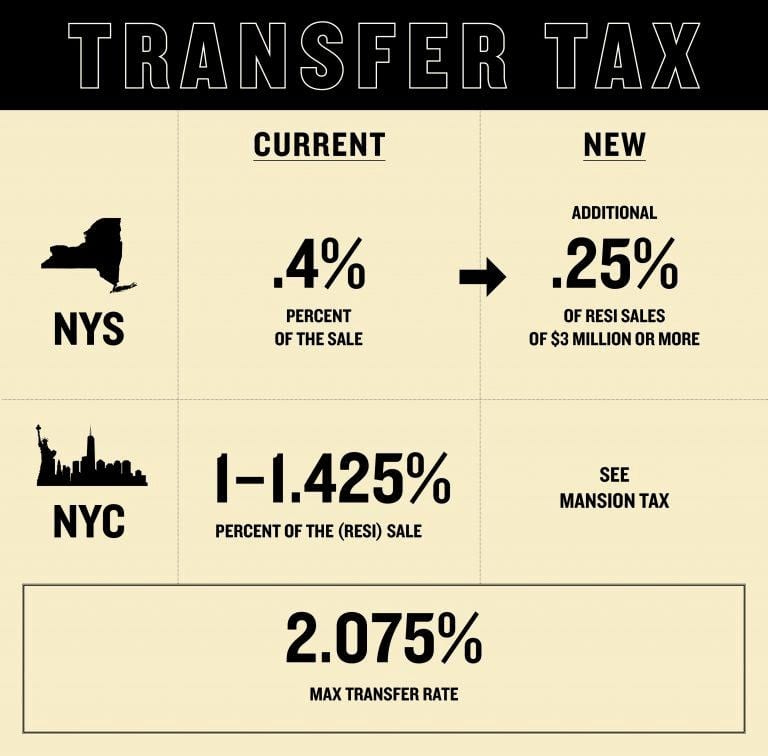If you haven’t already heard the news that’s been buzzing all across New York City the past few weeks, Gov. Andrew Cuomo and the New York State Senate and Assembly recently approved a new budget for 2019 to 2020 that introduces progressive mansion and state transfer taxes on the sale of certain homes in New York City.
Mansion taxes now range from 1 to 3.9 percent on the purchase price of all luxury residential properties in New York City valued at $1 million or more. Although a one-time levy, mansion taxes are not deductible despite being a tax. This new budget also imposes a progressive transfer tax of .25 percent for residential properties being sold for $3 million or more — increasing from 0.4 percent to 0.65 percent.
“The news regarding the mansion tax is a good reason for sellers to sell now before buyers offer less on homes because they will have to pay more in taxes. And vice versa — it’s also a good time for buyers to buy now before they get stuck paying more taxes later!“ – Michael Meier

Source: The Real Deal

Source: The Real Deal
These expansions go into effect July 1, 2019 and are projected to generate approximately $365 million in city revenue. The news comes in lieu of introducing an annual pied-à-terre tax — which has been circulating around the city with a general unified opposition throughout the real estate industry.
“The original mansion tax was introduced in 1989 by Gov. Mario Cuomo, with the intention of building up state budget during an economic recession at that time,” continues Michael Meier, MEIER Principal Broker & Coach. “Since there were fewer multimillion-dollar homes on the market, it was really targeted toward buyers who could most likely afford to pay these taxes.”
The mansion tax was originally a flat 1 percent tax on homes valued at a purchase price of $1 million or higher. With the former mansion tax in effect, buyers would be required to pay approximately $10,000 on a co-op, condo or single-family home valued at $1 million.
Today that mansion tax is increased on homes valued at $2 million or more with incremental increases the higher the purchase price — and it caps out at a whopping 3.9 percent for properties sold at $25 million or higher.
The biggest news of all is that this change only applies to New York City. The rest of the state still gets to take advantage of paying a mansion tax of only 1 percent on homes purchased for $1 million or more.
So what’s the reason behind this increase only being applied to New York City? The city is using the mansion tax expansion as a way to help fund the MTA’s transit improvements, which has been a hot topic for all New Yorkers for quite some time as the price of MetroCards continue to rise.
